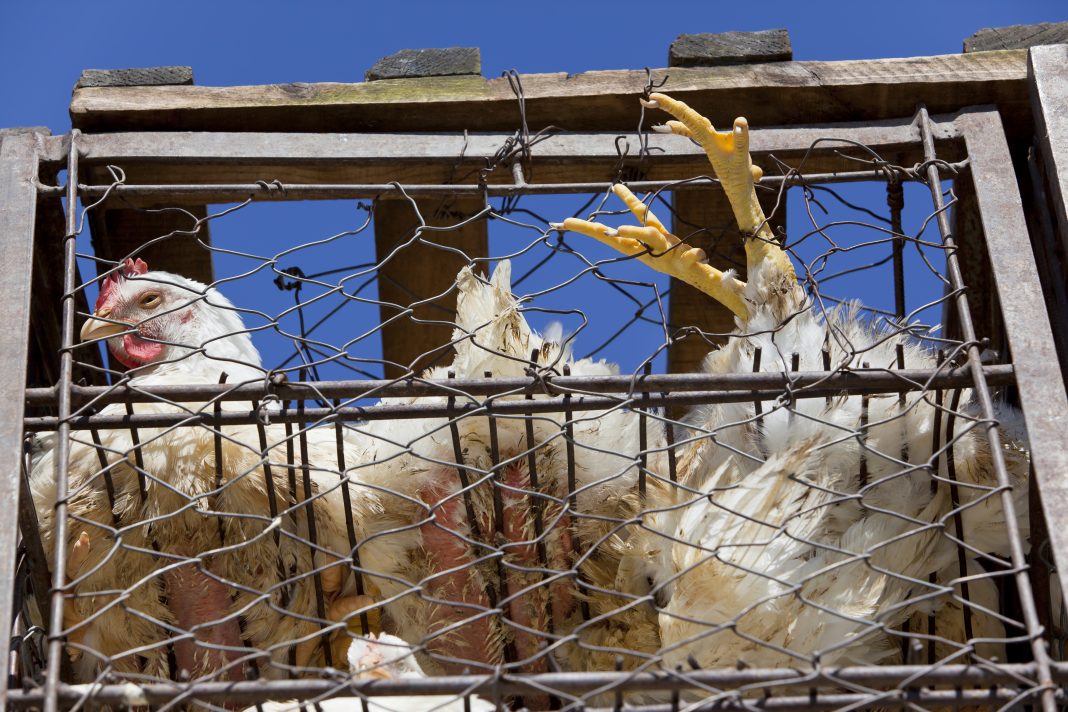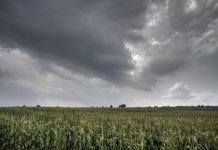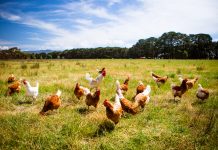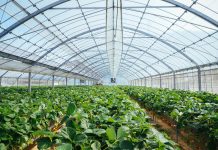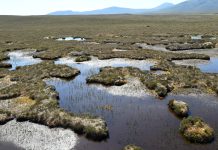Why must we end factory farming? The intensely cruel farming process is responsible for extreme animal cruelty, pollution, wildlife extinction and global hunger, but what can be done to stop it?
Many individuals who consume animals and animal products do not think about where their food comes from or how it has been farmed. Compassion in World Farming investigates the truth behind this cruel process and its implications for us, animals and the planet.
It may sound shocking, but factory farming is the norm, with every two in three farm animals factory-farmed. That’s more than 50 billion animals that are factory farmed every single year.
We must end factory farming before it is too late for the planet and all its inhabitants
Factory farming is an extremely cruel way of rearing and killing animals with production and profit above all else. On the surface level, factory farming produces cheap meat, milk and eggs, but delve deeper, and the effects are much more profound and serious.
We must end factory farming before it is too late for the planet and all its inhabitants.
Animals are exploited and abused in the most horrendous conditions
Of course, factory farming comes at a severe cost to animals. Despite being recognised as sentient beings by the European Union [1], farm animals are often raised in intense confinement and denied their basic rights. They endure short, miserable lives all in the name of profit.
‘An egg-laying hen in a barren battery cage often spends her whole life crammed into a space smaller than an A4 sheet of paper per animal’
For example, ‘An egg-laying hen in a barren battery cage often spends her whole life crammed into a space smaller than an A4 sheet of paper per animal’ reports CIWF [2].
As a result of their extreme confinement, animals become so bored and stressed that they injure each other. Often, they are mutilated (without pain relief) to prevent this from happening. Shockingly, the EFSA reports that 90% of Europe’s pigs are tail-docked despite it being illegal to perform routinely [3].
Furthermore, as a result of being injected with a cocktail of antibiotics and growth hormones, many animals develop often-painful physiological problems, lameness, weakened or broken bones, infections and organ failure.
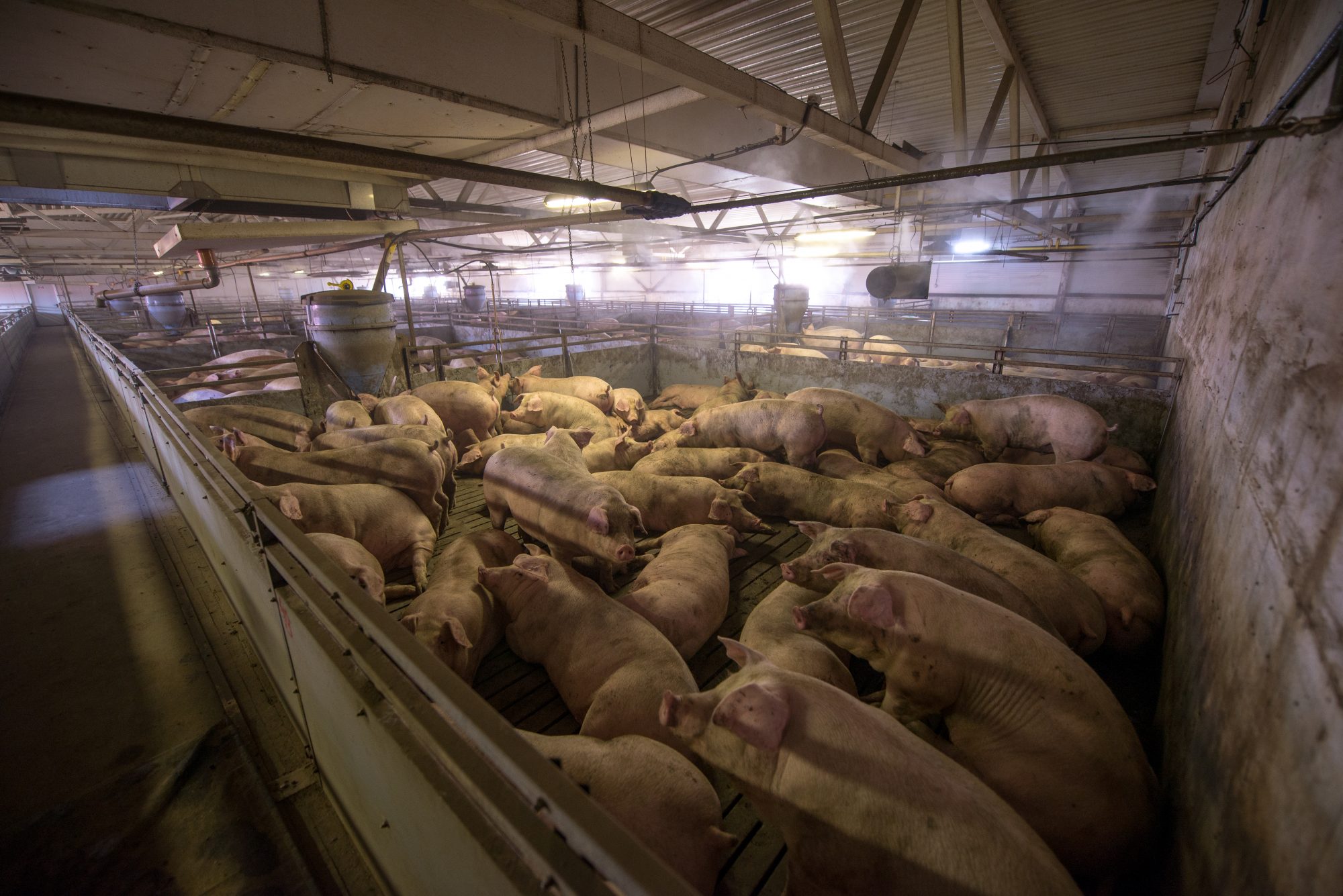
Factory farming is causing global hunger
Factory farming contributes to major biodiversity loss, disease and food insecurity.
For every 100 food calories of edible crops fed to livestock, we get back just 17 calories
Although intensive animal farming gives the impression that it is the cheap, efficient solution to feeding our world – this couldn’t be further from the truth. For every 100 food calories of edible crops fed to livestock, we get back just 17 calories in meat and dairy. This is a shocking 83% loss. Essentially, people are being forced to compete with farm animals for food.
End factory farming before our climate is irreversibly changed
Factory farming highly depends on large quantities of precious resources, including grain-based feed, water, energy and medication. Without a doubt, factory farming is a leading cause of climate change, releasing vast amounts of greenhouse gases.
Livestock farming produces 37% and 65% of global methane and nitrous oxide emissions, respectively, which are much more potent than carbon dioxide [4].
Moreover, 40% of global arable land is used to feed animals instead of people, driving deforestation and massive loss of wildlife habitats.
To reiterate, the livestock sector is a major source of global greenhouse gas emissions and air, soil and water pollution. Despite knowing this, factory farming is still how most animals are reared and killed for food, and this over-reliance on animal protein continues to grow every year, fuelling the devastation of our planet.
Compassion in World Farming is urging leaders to end factory farming
Compassion in World Farming calls on World Leaders to develop a Global Agreement on food and farming for adoption by the United Nations General Assembly to move away from industrial animal agriculture and, ultimately, end factory farming.
Help end factory farming, to give Snowdrop – and us – a brighter future.
Intensive farming isn't just appallingly cruel to vulnerable animals – it's one of the biggest contributors to climate change.
Help us end it. Donate now: https://t.co/IprbtIn6oD pic.twitter.com/xxJz2wpMBz
— Compassion in World Farming (@ciwf) March 28, 2023
“There is an urgent need to transform the food system. If the global community is to meet the Sustainable Development Goals, the Paris Climate Agreement targets and the goals of the Convention on Biological Diversity, action must be taken to end intensive animal farming.
“We, the undersigned, call on World Leaders to develop a Global Agreement on food and farming for adoption by the United Nations General Assembly, with the objective being to move away from industrial animal agriculture and:
- Shift to nature-positive farming systems that help restore biodiversity and soils and keep the global increase in average temperatures below 1.5˚C.
Reverse over-reliance on animal protein in high-consuming populations and support equitable, secure access to nutritious food. - Ensure a just transition to a global food system that provides fair livelihoods for farmers and protects the rights of indigenous peoples, women, and vulnerable communities.
Achieve a financial and regulatory environment which helps to secure the above transition. - Deliver high standards of farmed animal welfare.
“If World Leaders continue to ignore the impacts of animal agriculture, the climate targets in the Paris Agreement will be out of reach. Without urgent action, intensive animal agriculture threatens our very survival. It’s the end of the line for factory farming, or for us.”
References
[1] EU (2011), The EU and Animal Welfare: Policy Objectives
[2] CIWF (2011), Welfare Issues for Egg-laying Hens
[3] EFSA (2007), Scientific Report on the Risks Associated with Tail Biting in Pigs and Possible Means to Reduce the Need for Tail Docking Considering the Different Housing and Husbandry Systems
[4] FAO (2006), Livestock’s Long Shadow

